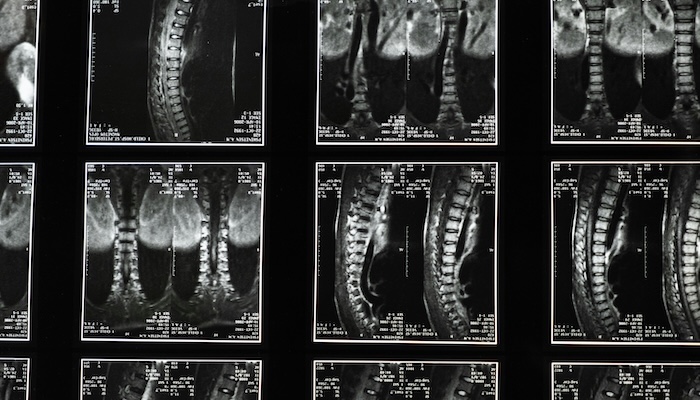
Scoliosis is a condition where the spine curves sideways, often developing during the growth spurt just before puberty. While scoliosis can range from mild to severe, the impact on daily life can be significant, especially when pain becomes a chronic issue. At Precision Pain Care and Rehabilitation, our focus is on helping patients with scoliosis manage their pain effectively through interventional pain management strategies.
What is Scoliosis?
Scoliosis affects approximately 2-3% of the population, primarily adolescents. The abnormal curve of the spine can take on various forms, including a C-shaped or S-shaped curve. While many cases of scoliosis are mild and require minimal treatment, more severe cases can lead to discomfort, functional limitations, and chronic pain due to muscle imbalances, nerve compression, or even damage to spinal structures over time.
Symptoms of scoliosis can vary depending on the severity of the curvature but commonly include:
- Uneven shoulders or hips
- Back pain, especially in adults
- Muscle spasms
- Limited mobility
- Visible spinal curve
Interventional Pain Management for Scoliosis
At Precision Pain Care and Rehabilitation, we take a comprehensive, minimally invasive approach to managing scoliosis-related pain. Interventional pain management offers effective treatments that help reduce pain, improve function, and enhance the quality of life for scoliosis patients. Rather than relying solely on medications, this approach focuses on targeting the pain source directly through a variety of advanced procedures.
Here are some interventional treatments that can benefit scoliosis patients:
1. Epidural Steroid Injections
For patients experiencing nerve compression due to spinal misalignment, epidural steroid injections can help reduce inflammation and relieve pain. These injections deliver corticosteroids directly to the affected area, providing relief for weeks or months.
2. Radiofrequency Ablation (RFA)
Radiofrequency ablation is a procedure that uses heat to disrupt the nerves responsible for transmitting pain signals to the brain. This treatment can provide long-term relief for patients with chronic scoliosis-related pain, especially when spinal joints are affected.
3. Facet Joint Injections
Facet joints are the small joints that connect each vertebra in the spine. When these joints become inflamed due to scoliosis, they can cause significant discomfort. Facet joint injections deliver a local anesthetic and steroid to the affected joints, relieving pain and improving mobility.
4. Spinal Cord Stimulation (SCS)
In cases where scoliosis-related pain is particularly debilitating, spinal cord stimulation may be an option. This treatment involves implanting a small device near the spine that sends electrical impulses to block pain signals before they reach the brain. This option is often reserved for patients who haven’t found relief with other treatments.
5. Physical Therapy and Rehabilitation
While interventional procedures offer significant relief, combining them with physical therapy ensures a holistic approach to managing scoliosis pain. Strengthening and stretching exercises can help realign muscles, improve posture, and reduce strain on the spine.
Why Choose Interventional Pain Management?
One of the greatest advantages of interventional pain management for scoliosis is the focus on targeting the root cause of the pain. Traditional treatments like pain medication can temporarily mask symptoms but do not address the underlying issues. At Precision Pain Care and Rehabilitation, we emphasize the importance of minimally invasive procedures that deliver long-term relief without the risks associated with surgical interventions.
Interventional pain management can also be an excellent alternative for patients who are not candidates for surgery, either due to age, health conditions, or personal preference. It allows for a customized treatment plan tailored to each patient's unique needs and pain level.
Real-Life Impact: Patient Case Study
Consider the example of a 35-year-old woman who has been living with scoliosis since adolescence. Over the years, she developed chronic lower back pain that limited her ability to work and engage in daily activities. After trying various treatments with minimal success, she visited Precision Pain Care and Rehabilitation, where a comprehensive interventional pain management plan was developed.
Through a combination of facet joint injections and radiofrequency ablation, her pain levels significantly decreased. With the addition of physical therapy, she regained mobility and strength, allowing her to return to her daily life with minimal discomfort.
Final Thoughts
Scoliosis can be a life-altering condition, but with the right treatment approach, patients can achieve significant pain relief and improved quality of life. At Precision Pain Care and Rehabilitation, we believe that interventional pain management offers scoliosis patients the best chance at living pain-free. By using advanced, minimally invasive treatments tailored to each individual, we can help you regain control over your health and well-being.
If you're living with scoliosis-related pain, contact Precision Pain Care and Rehabilitation to discuss how we can help you manage your symptoms and improve your quality of life.
Precision Pain Care and Rehabilitation has two convenient locations in Richmond Hill – Queens, and New Hyde Park – Long Island. Call the Queens office at (718) 215-1888 or (516) 419-4480 for the Long Island office to arrange an appointment with our Interventional Pain Management Specialists, Dr. Jeffrey Chacko or Dr. Sonny Ahluwalia.













